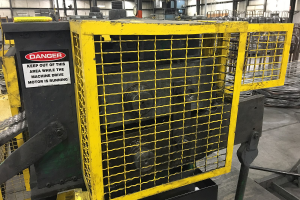Proposed changes to OSHA Act punish business, employers representative says
Proposed changes to OSHA that are now working their way through Congress, including increased penalties, focus on punishing employers and will not improve workplace safety and health, a representative of a coalition of employer groups testified Tuesday.
“Penalties alone will not improve workplace safety—remember, in most cases, penalties are imposed after the fact of an injury or fatalities,” said Jonathan Snare, speaking for the Coalition of Workplace Safety, which includes the U.S. Chamber of Commerce and other employer groups. He was testifying before the House Education and Labor Committee.
“The critical mission of OSHA is to assist employers to make sure these injuries and fatalities never occur in the first place. … This approach can be achieved by using existing programs that offer compliance assistance, outreach, and training.”
David Michaels, Assistant Secretary of Labor of OSHA, had a different point of view.
“Safe jobs exist only when employers have adequate incentives to comply with OSHA’s requirements,” he said. “Those incentives are affected, in turn, by both the magnitude and the likelihood of penalties.”
Snare and Michaels disagreed on a number of other proposed amendments to the OSHA Act, which have been merged into a bill that would make changes to the Mine Safety and Health Act:
- Rules that would no longer grant employers an automatic stay of requirements that they abate an OSHA violation that they are contesting:Michaels said the change was needed among other reasons because OSHA is often forced to negotiate a reduction in penalties in order to obtain agreement from an employer to correct a hazard while a violation is under contest. As a result, he said, “the average current OSHA penalty is only around $1,000.”
But Snare said: “Abatement is more than just protecting against a hazard; it is part of accepting responsibility for the violation. Mandating abatement before allowing the employer to exhaust their adjudicative process would be like asking a criminal or civil defendant to pay a fine or serve a sentence before the trial is held.”
- Increased protection for whistleblowers: Michaels said the proposed changes would bring whistleblower provisions in the OSHA Act in line with whistleblower provisions for other agencies.“The proposed legislation would prohibit employers from discouraging the reporting of
work-related injuries and illnesses by employees,” Michaels said. “OSHA is strongly committed to accurate reporting of both injuries and illnesses.”But Snare said the proposals would “create additional complicated and costly procedures for adjudicating whistleblower cases, without any evidence or justification that the existing protections available to employees under Section 11(c) of the OSH Act are somehow deficient. The CWS is also concerned with other proposals in Section 701 which are overly punitive on employers and will benefit no one, aside from trial lawyers.”
As I said in a previous blog posting, this bill would radically alter the OSHA landscape. Employers would be well advised to follow the bill’s progress closely and begin examining their safety programs in light of changes that would occur if the bill is passed.
To read the full text of Snare’s statement, click here.
The Education and Labor Committee is likely to vote on the bill in the next few days and the full House may vote by the end of the month.
To keep up with this bill, as well as the administrative steps OSHA is taking to step up enforcement, subscribe to our blog and have it delivered automatically to your mailbox or Reader.


